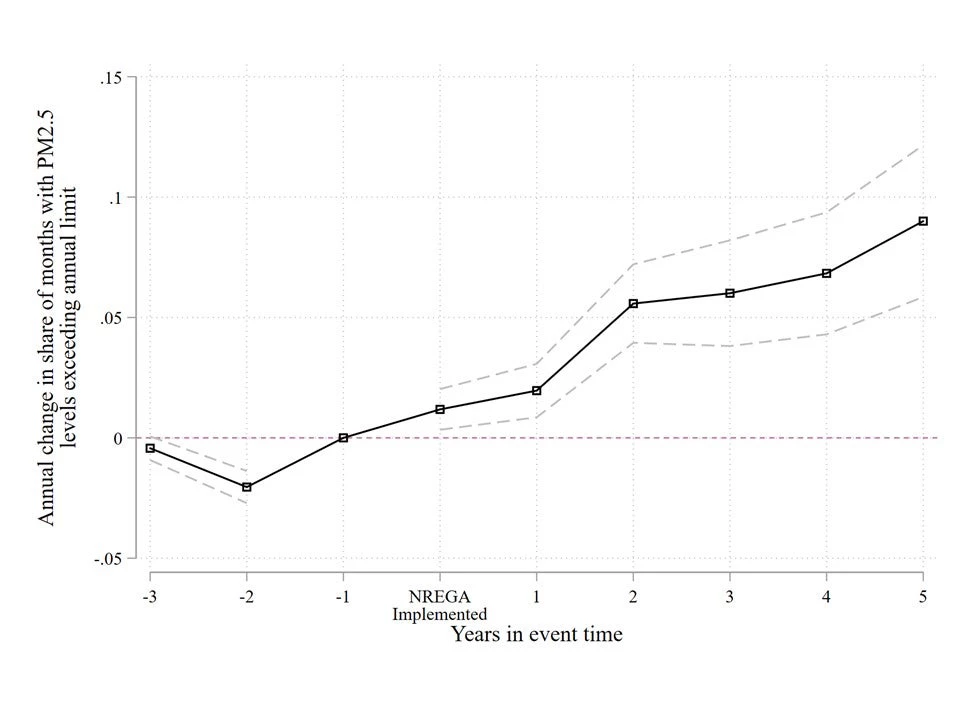 Photo: Wikimedia Commons
Photo: Wikimedia Commons
The proliferation of multinational corporations (MNCs) in the age of global value chains (GVCs) has shaken up traditional trade policy beliefs and practices. For example, unrestrained MNCs often make bilateral trade remedies such as anti-dumping duties ineffective by easily relocating production to foreign affiliates in third countries. Given that MNCs are increasingly influential in the domestic economy, governments may want and need to reassess not only trade policies but also domestic labor market policies from a transnational perspective .
In a new study, we investigate a relatively unexplored aspect of the policy implications of GVCs—namely, the extent to which the presence of MNCs affects the effectiveness of domestic labor market policy. A case in point is labor market regulation, such as raising minimum wages.
Minimum wage hikes and MNCs: more affected or less affected?
Researchers have traditionally utilized the minimum wage "bite" approach to estimate the effect of minimum wage hikes on employment. The method relies on the variation in treatment intensity, i.e., the fraction of workers earning less than the new minimum wage across firms, regions, or industries. From this perspective and the findings in the literature, large firms, including MNCs, should be less affected than smaller firms by a minimum wage hike because they tend to have a smaller share of workers earning less than the new minimum wage.
In the age of GVCs, however, MNCs may respond more sensitively to a minimum wage increase; they can reallocate production tasks to foreign affiliates in countries with cheaper labor costs. This can amplify the adverse effect of the minimum wage increase on domestic employment. Although the idea is intuitively based on the existing theories of MNCs, there is scant empirical evidence on their responses to more stringent labor market regulation, not least due to the difficulty in identifying causal relationships.
Recent minimum wage hikes in South Korea as a quasi-natural policy experiment
South Korea offers a unique setting for the purpose of this study for two reasons. First was a shift toward more rigid labor market policies, most notably the consecutive double-digit yearly minimum wage hikes that took place in 2017 (Figure 1). And second, because local businesses did not expect these policy changes, they resulted in adverse labor cost shock as an effective source of exogenous variation.
Firm-level survey data from the South Korean national statistical office provides a comprehensive set of operational information, including the locations and industries of each firm’s foreign affiliates . The data enabled us to identify MNCs and their responses to the labor cost shock through foreign internal networks.
Figure 1: Minimum Wage Increases in South Korea

Sources: Minimum Wage Commission of Republic of Korea, Bank of Korea, and OECD Statistics Database
We investigated the differential impacts of the stricter labor market regulations across firms over the period of 2013-19. An event study analysis to track employment trends separately for S. Korean firms with foreign affiliates (i.e., MNCs) and for firms without foreign affiliates (i.e., non-MNCs) revealed that only the MNCs group experienced a decline in employment after 2017. To control for any potential time-varying confounding effects, we estimated difference-in-differences as well as dynamic treatment effects by including industry-region-year fixed effects. In addition, we employed a propensity score matching (PSM) method to alleviate concerns about sample selection bias due to observable differences between MNCs and non-MNCs.
Overall, our empirical results suggest that, because of stricter labor market regulations, domestic employment declined by 3% in MNCs on average (Figure 2). The negative employment effects for MNCs are consistent with the task substitution between domestic workers and foreign factors of production through their internal networks. Indeed, the employment substitution was particularly noticeable in firms with foreign affiliates in emerging Asian countries—where labor costs are among the lowest—and in firms with foreign affiliates performing similar manufacturing tasks.
Figure 2: Estimation Results from the Propensity-Score Matched Sample
Notes: The sample includes manufacturing firms only. The dependent variable is the log of employment. The dynamic treatment effects refer to differential effects between MNCs and non-MNCs.
Interpretation of observed patterns
Our findings contradicted possible alternative explanations such as the replacement of domestic labor with domestic capital, or the replacement of unskilled workers with skilled workers. Furthermore, the estimated results do not appear to be driven by foreign demand shocks. Collectively, all the evidence supports the interpretation that MNCs reallocated tasks across borders through flexible internal networks in response to a steep rise in labor costs induced by more stringent labor market regulations.
Policy implications of the new findings
Contrary to the conventional wisdom that MNCs would be the least likely to be affected by minimum wage increases, our results highlight that the cross-country networks within MNCs may lead to unintended consequences of domestic labor market policies that the policy makers did not anticipate. As governments begin to consider new or changing existing policies, they need to be aware of these effects and be better prepared with labor adjustment programs, such as retraining, to mitigate the negative employment effect . Such programs would be particularly critical if the jobs vulnerable to being replaced by foreign workers due to minimum wage hikes may be "better" paying jobs.





Join the Conversation